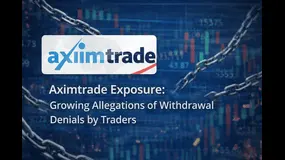Abstract:FINMA calls for enhanced regulatory powers after Credit Suisse crisis. Strengthening Swiss banking oversight for stability and accountability.

ZURICH, Switzerland – In a decisive response to the Credit Suisse crisis, the Swiss Financial Market Supervisory Authority (FINMA) has called for expanded regulatory powers. This request follows the high-profile takeover of Credit Suisse, a venerable institution in Swiss banking, by UBS in March, orchestrated under the watchful eye of Swiss authorities amidst a severe client and investor exodus.
The authority's recent report underscores its successful collaboration with the Swiss government and the Swiss National Bank in preserving the solvency of Credit Suisse and securing financial stability. Yet, the regulator emphasizes the urgent need for enhanced legal capabilities to better manage and preempt future banking crises.
FINMA's proposals for increased powers are multifaceted. They include the implementation of a Senior Managers Regime, the authority to impose significant fines, and more stringent rules regarding corporate governance. These measures aim to fortify the regulatory framework and ensure greater accountability and oversight of the banking sector.
The context for FINMA's call to action is a story of errors and failures at Credit Suisse. Despite being 167 years old, the bank was on the verge of collapse owing to a series of risk management errors and scandals. These challenges were exacerbated by the inconsistency with which strategy changes designed to de-risk the bank, such as shrinking its investment wing and concentrating on asset management, were implemented.

Furthermore, the bank's reputation suffered due to recurrent scandals.
FINMA's intensive oversight of Credit Suisse in the years preceding the crisis is noteworthy. The regulator conducted 43 preliminary investigations, resulting in nine reprimands, 16 criminal charges, and 14 enforcement proceedings. These figures highlight the regulator's proactive stance but also point to the limitations of its current legal powers.
Another aspect of concern is the remuneration practices at Credit Suisse. Even during times of heavy financial losses, executive compensation remained high, with shareholders showing limited initiative in influencing pay structures. This situation raises critical questions about the efficacy of governance and incentive systems within major financial institutions.
In the wake of the Credit Suisse collapse, FINMA's report also delves into the bank's risk culture and its corporate governance. The regulator had previously imposed various measures, including capital and liquidity requirements, interventions in governance and remuneration, and restrictions on business activities. However, the crisis has revealed that these measures were not enough to prevent the bank's downfall.

The regulator's proposed legal enhancements are aimed at providing it with a broader range of tools to influence the governance of supervised entities more effectively. These include not only the ability to levy fines but also the option of publicly disclosing enforcement proceedings. To effectively intervene in remuneration systems, FINMA asserts that a more robust legal mandate is essential.
This development marks a significant moment for the Swiss banking sector, historically known for its stability and robustness. The collapse of Credit Suisse has implications beyond Switzerland, reflecting the interconnected nature of global finance. It highlights the need for vigilant regulatory oversight and responsive governance structures in the banking industry.
As FINMA seeks to bolster its regulatory framework, the focus is on enhancing the resilience of the Swiss banking sector. The measures proposed aim to prevent similar crises, protect the interests of investors and clients, and maintain the integrity of the banking system.
The unfolding situation around Credit Suisse and FINMA's response will be closely watched by financial markets worldwide. It underscores the importance of robust regulatory frameworks in maintaining financial stability and the need for continual adaptation and strengthening of these systems.
FINMA's request for enhanced powers is an important step toward ensuring that Swiss banks, and hence the global financial community, function in a more safe and responsible environment. The changes implemented in reaction to the Credit Suisse crisis are expected to have far-reaching ramifications for global banking regulation and governance.
For further information, please see the entire report produced by FINMA or contact the Swiss Financial Market Supervisory Authority directly.












